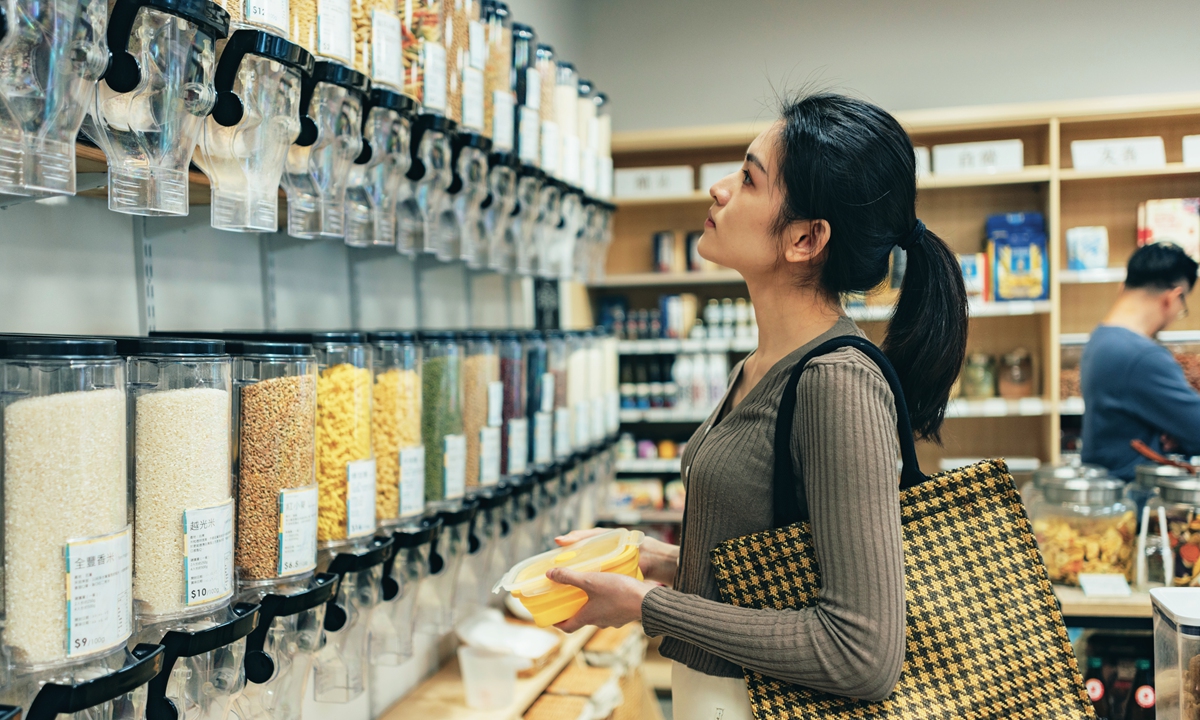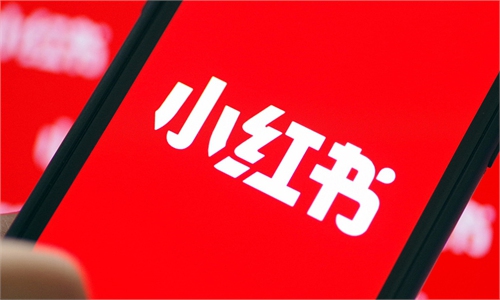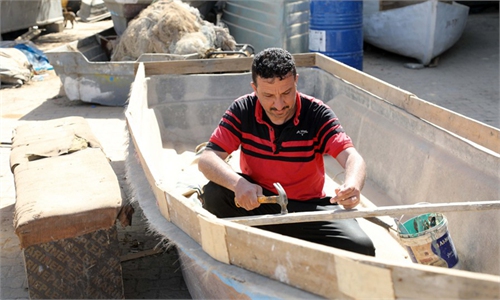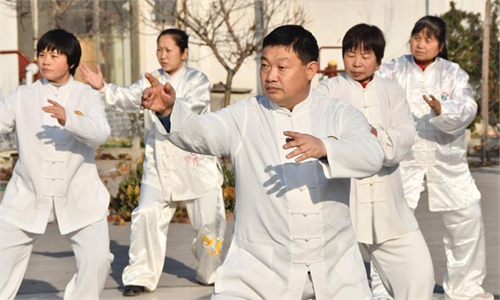ARTS / CULTURE & LEISURE
Money-saving lifestyle hailed by young 'frugal' Chinese
Green Consumption

A woman brings her own container and shopping bag while shopping at an eco-friendly store. Photo:VCG
"As a painter, I want to study the masters' works in detail, but they are too pricey. The cheapest art book is around 200 yuan ($30), and you always have to wait for the popular ones in the library to be free. So, I choose to look for used books."
Wang Shu'ai, a 28-year-old oil painting student, has been a fan of buying and trading art books on Xianyu, a popular Chinese second-hand goods exchange platform, for more than four years.
Wang is one of an expanding group of young Chinese who have been pursuing a thrifty and green lifestyle by methods such as bringing their own bags instead of plastics ones while shopping and collecting coupons. In China, they have a new name "Koukouzu," or "the young frugal Chinese."
In the West, however, Buy Now, Pay Later (BNPL), an often unregulated installment plan money lending approach, is capturing the hearts of more Gen Z members in Western countries as promotions for the payment method gain ground on social media.
According to data provided by eMarketer, the proportion of Gen Zs using BNPL services in the US has more than tripled from 10.9 percent in 2019 to 36.8 percent in 2021. It is expected that in 2022, the use of BNPL among Gen Z will increase to 44.1 percent, and the use among millennials is expected to reach 37.2 percent.
"Garish advertising and some lip-service to some e-commerce shops hold less attraction for today's young Chinese. What truly grabs their attention are tangible benefits when it comes to price and the quality of goods," Ding Daoshi, a independent internet analyst, told the Global Times.
Price and quality
After four years on Xianyu, Wang has developed a knack for saving money while still finding the books she needs.
Her most successful purchase was a collection of works by Francis Bacon bought from a Shanghai seller. The collection was 399 yuan on Taobao, but she bought it for only around 150 yuan, Wang told the Global Times.
Eventually, Wang decided to start her own tiny business selling high-quality second-hand books. She also began renting books to her classmates.
The second-hand market, both online and offline, is a channel for young Chinese to save money, so services for trading in used goods for new ones and exchanging unused items has seen success.
Data from JD.com shows that in the first quarter of 2022, the number of users participating in mobile phone trade-in increased by nearly five times year-on-year.
In the meanwhile, young users aged 18-35 accounted for 60 percent of people who have once used trade-in services.
Wan, a 27-year-old Wuhan resident, told the Global Times that when buying a new phone she was able to save herself 500 yuan by trading in her old one through a second-hand service at the store.
She also decided to get some money back by putting some furniture she had bought to decorate her rented apartment up for sale online before moving back to Wuhan from Beijing.
"Why not? I get material benefits and at the same time, these items will not be wasted, which is also good for the environment," Wan told the Global Times.
For these young people, saving money does not mean having to sacrifice their quality of life.
They lay equal stress on both price and the quality of the items they get in return.
A report on new consumption methods of Chinese youth by Beijing Normal University said that 57.9 percent of young people care about price and among them, 62.6 percent put equal value on quality.
Waste not, want not
More young people are also focusing on spending their money on more environmentally friendly products to do their part to protect the environment.
The lifestyle begins with actions such as not ordering takeout, bringing their own bags instead of using plastic ones from the supermarket and bringing their own coffee cups to coffee shops.
Inside a small alley in a Beijing city center stands an unremarkable store that focuses on zero waste products and lifestyles, The Bulk House.
On its shelves are a series of products made from eco-friendly, biodegradable or second-hand materials.
And the shop owner tries her best to minimize the use of packaging.
The shop attracts young people with the concept of minimalism. Hu, a costumer who works as a consultant, told the Global Times that she bought a shopping bag there and has been using it at the supermarket for the past three years.
"It may not seem like a big deal, but the money spent on plastic bags adds up over the years and the negative impact on the environment goes beyond numbers." Young Chinese today are breaking the stereotype that young people are all about spending money on unnecessary items, without sacrificing quality of life or the environment.



